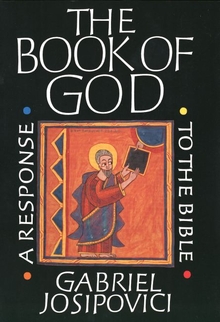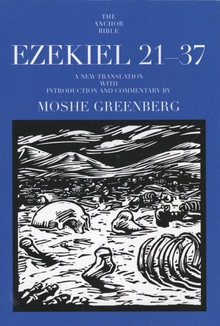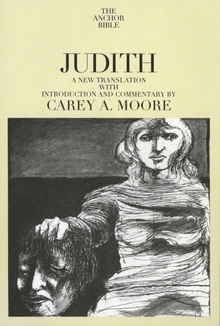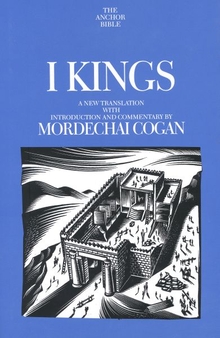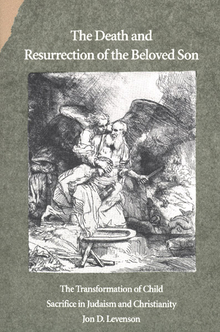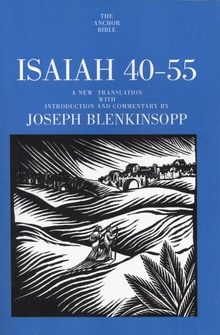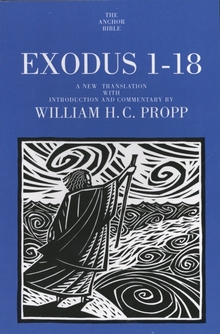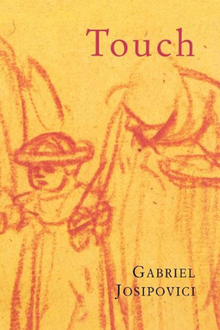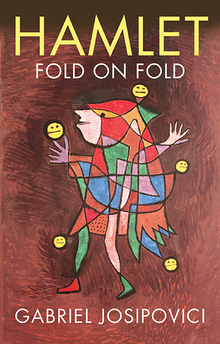The Book of God
WARNING
You are viewing an older version of the Yalebooks website. Please visit out new website with more updated information and a better user experience: https://www.yalebooks.com
A Response to the Bible
Gabriel Josipovici
"Full of such insights, which deserve and need to be pondered by both literary critics and Biblical scholars of the traditional sort."—John Barton, London Review of Books
" His book is easy, intimate and direct, partly because he has digested all his learning, partly because his dissatisfaction with his predecessors' solutions never belittles them, and partly because his own readings are those of a cultivated contemporary who, though respectful, is not awestruck. Whatever he turns to, he illuminates."—The New Yorker
"His urbane style, shrewd discernment, subtle humor, and above all, his passion for words lead us to listen in fresh ways."— Walter Brueggemann, Theology Today
"A healthy corrective to the emphasis on individual strands of tradition in Bible study: Josipovici demands that we answer the question of what the Bible means in its present form."—Booklist
"As 'A Response to the Bible,' The Book of God is fresh and energetic, scattering insights in all directions, making original and unexpected connections between the Bible and such modern authors as Proust, casting new light upon such questions as the Bible's place in Western culture, the nature of its authority, the unity and discontinuities of the text, and the need for a perspective that at once transcends and unites historical-theological and aesthetic interpretation."—Northrop Frye
"Josipovici's reading reminds us that the Bible can perhaps never be finally explained and that a true reading such as his enforces an encounter with oneself as well as with the Bible."—Kirkus Reviews
"Gabriel Josipovici is a living contradiction of the major thesis of his book. His argument is a plea on behalf of the supremacy of reading Scripture as against interpreting it. Yet his own searching interpretation serves to flood the Bible with new and powerful light beams."—Arnold Ages, Chicago Tribune
"Josipovici's response to the Bible is not only highly intelligent but considerate."—Denis Donoghue, Times Literary Supplement
"Makes for fascinating reading. . . . In particular, the way in which Professor Josipovici uses modern writers such as Proust, Joyce and Thomas Mann to establish and illuminate his points is fascinating."—Joseph Robinson, Church Times
"Full of such insights, which deserve and need to be pondered by both literary critics and Biblical scholars of the traditional sort."—John Barton, London Review of Books
"This is a book to be grateful for: thoughtful, deeply felt, and beautifully written."—David Lodge, Independent
"Beautifully written, it is hard to describe the pleasure it gives."—Rabbi Dr. Jonathan Magonet, Jewish Chronicle
"This is a beautifully written and luminous book, which has as much to offer the reader interested in the religious 'message' of the Bible as it has to contribute to the revival of interest in the Bible now observable in the literary world."—John Barton, Theological Book Review
"The effort he has undertaken—close reading in the original languages, comparison of English translations, and mastering modern critical, historical, archeological, and theological approaches to the Bible—is enormous, but his book is easy, intimate and direct, partly because he has digested all his learning, partly because his dissatisfaction with his predecessors' solutions never belittles them, and partly because his own readings are those of a cultivated contemporary who, though respectful, is not awestruck. Whatever he turns to, he illuminates."—The New Yorker
"Josipovici has written a deeply religious book which the non-religious reader will also find moving."—Karen Armstrong, Telegraph
"The writing is remarkably exuberant, full of the excitement of discovery. . . . His study . . . yields valuable insights into the rhythm of the Bible, its attitude toward speech, and its conception of character."—Choice
"His urbane style, shrewd discernment, subtle humor, and above all, his passion for words lead us to listen in fresh ways. . . . Josipovici offers us a step along the way, the way to a new hearing of the word. What is required is not more data, more technical information about texts, but different ears. 'Scripture alone' is dangerous when separated from 'grace alone.' This book is not interested in formulated theology; the reading offered nonetheless is a reading from grace, which might recharacterize 'Scripture alone' in its awesome gracefulness and graciousness. The reading purposed here suggests that the text be permitted as a mode of shattering and healing, of dismantling, and surprising. Something like this must have been intended in the text from early on—and then lost. To learn again to read could be a pearl of great price, worth the farm! This book is a signpost on the way to that new reading."— Walter Brueggemann, Theology Today
"One of the most perceptive literary responses to the Bible as sacred literature."—Bible Today
"This book succeeds in neither containing the Bible, nor smothering it in detail nor drowning it in theory. It is well-informed, subtle, lucid, and illuminating and, like the Bible itself, is better encountered that interpreted."—P.R. Davies, Literary Criticism and Introduction
"Josipovici skillfully brings his readers into fresh encounter with the rhetoric and pathos of the biblical narratives themselves. . . . Josipovici's study provides an exemplary text for students who are exploring the Bible as literature. . . . Josipovici offers an informed, sensitive, and balanced legitimation as to how Jews and Christians (and, to a lesser degree, Protestants and Catholics) are routinely led to interpret the same biblical texts quite differently. [This] book also has much to offer biblical scholars concerned with issues of methodology. . . . [The author] deeply understands the impact of modernism on the Bible and, from a fresh vantage point, offers a trenchant assessment of how and why current methodologies fail precisely because they insulate the reader from that electrifying contact with the Bible whereby it can be known as The Book of God."—Aaron Milavec, Interpretation, A Journal of Bible & Theology
"Josipovici takes up the task of book/word/God-wrestling (existential encounter) with some enthusiasm and erudition. His general love of literature, his knowledge of languages and, yes, his astute ability to read perceptively, allow him to offer many insights, related specifically to the parts and pieces of the Bible as they contribute to the overall whole, and to go beyond a literary/experiential reading, into a sensitive analysis of how the two biblical religions, Judaism and Chrisitianity, can be understood. . . . Josipovici succeeds in convincing this reader that the Bible is a unified book and not a 'rag-bag' of isolated stories and fragments. . . . Many fine perceptions. . . . Clearly written passages and good word sensitivity. . . . The reader definitely moves forward with Josipovici to experience the meaningful. . . . An extensive bibliography and detailed notes all contribute to an overall trust in Josipovici's own special ability to read with intelligent sensitivity."—Ray Shankman, Dalhousie Review
"Gabriel Josipovici's The Book of God brings a new perspective. . . . [He] tries to respond to the text as a reader, rather than as a literary critic, theologian or archeologist. . . . As the author carefully goes through the whole Bible, each insight developed and then later re-examined in new context, the reader also comes to trust this clearly and beautifully written text as well. Anyone familiar with the Bible will gain a new awareness of its intricate art, and will want to read it anew; anyone who has ignored or shunned 'The Good Book' will be inspired to find the delights and rewards of reading our greatest book."—James J. O'Meara, Judaica Book News
"Drawing from an enormously rich arena of literary and critical background, Gabriel Josipovici now directs us to rethink earlier studies, weaving into the fabric of his discussion new ideas about the ways we read Proust, Milton, Dante, Homer, Beckett, Dostoevsky, Dickens, Shakespeare, Chaucer, T.S. Eliot. We encounter innovative suggestions about the rhythm of the Bible, about the narratives seemingly scattered in random fashion throughout the Old and New Testaments, and about shifts in characterization as we move from David to Jesus to Paul. Taken together, these topics give us the confidence to see the Bible not as a collection of separate volumes, but as a unified, coherent work. . . . Detailed, scholarly, and always exciting. Perhaps, however, the real challenge that this book issues is one that urges us to take up the Bible again and to read it as we have not read it before. There is an excellent bibliography. The notes are extensive. There is a thorough index of names and a second of Biblical passages that are cited."—Samuel G. Hornsby, Jr., Southern Humanities Review
"He has indeed read extensively in the field and . . . he has made excellent use of the secondary literature. He has written this book for the intelligent layperson, but specialists will also benefit immensely from it. In fact, this reviewer can think of no other book that will give the reader a more profound understanding and deeper appreciation of the Bible—both the Hebrew Bible and the New Testament—as a whole. It is not an introduction to the Bible, and yet the book runs the gamut of biblical literature. . . . Josipovici's insights on Job are fresh and provocative. . . . In his concluding chapters, Josipovici meditates profoundly on the differences between 'Hebraic' biblical literature (including the Gospel of Mark!) and Christian biblical literature. . . . The great attraction of this book is that although it raises questions that have been raised before, it grapples with them from a literary, rather than a theological or historical, perspective. The book is, as its title indicates, a response to the Bible, carried out by someone who has read broadly and with great insight. The results will enrich every reader."—James S. Ackerman, Bible Review
"Josipovici has a gift for asking the right questions: not only what makes the Bible distinctive, hyper-modern, and how can one defend literary criticism of the Bible against its detractors, but also what it is to read and to write, how does the word unfold within us, what happens when it fails. . . . [This] is obviously one of the great critical books on the Bible and perhaps the best Josipovici has written."—Francis Landy, Jewish Quarterly
"This is undoubtedly one of the best of the new wave of literary discussions of the Bible yet to appear, and almost every page has new insights and ideas that are worth pausing over."—Stephen Prickett, Literature and Theology
"We have Josipovici to thank for heightening our awareness of the subject, and for subtly producing in us the parallel need to respond to the text even as we analyze it. Readers will be instructed and delighted by Josipovici's brooding and thoughtful intelligence — and by the rhythm of exploration and honesty of his passage through Scripture."—Michael Fishbane, Journal of Biblical Literature
"The book is fresh, informed, and well written. It does not take the easy path of analyzing a few good narratives but deals with the large patterns of the Bible and with its language, character, and interpretation. Josipovici understands the strengths and limits of modern scholarship and refrains from easily scolding the guild. It is the best book on the Bible by a literary scholar and will instruct and delight lay readers and scholars."—Richard Clifford, Journal of Religion
Publication Date: August 29, 1990

